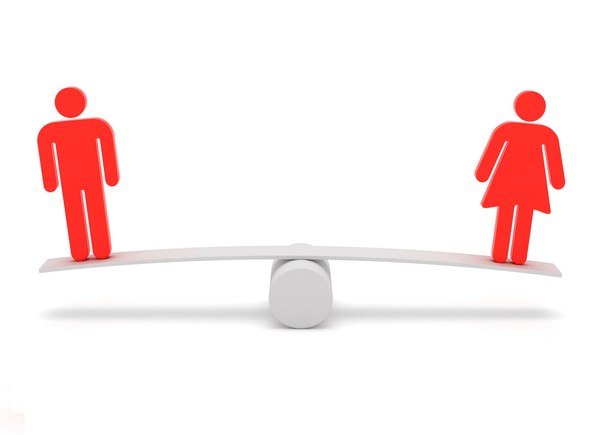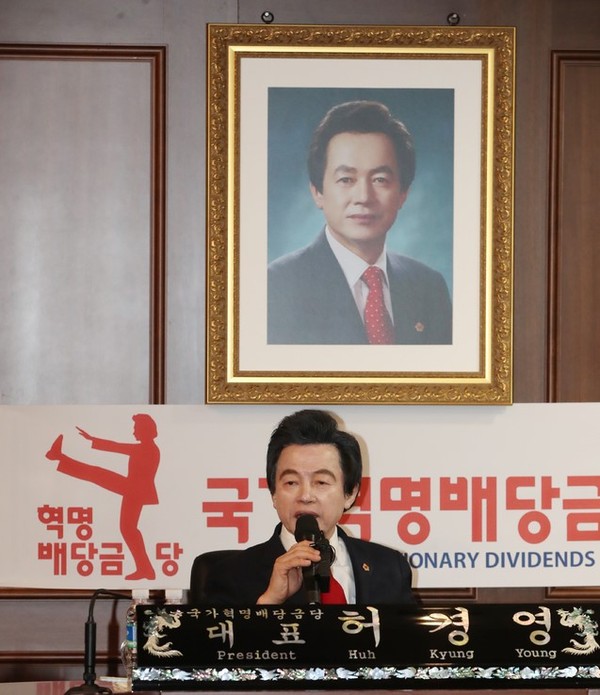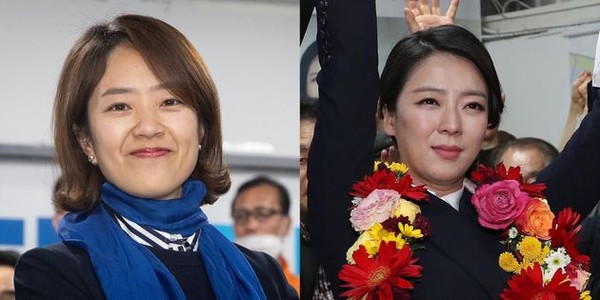
Noonsong turns 21 this year and has exercised her right to vote in the election for members of the National Assembly on April 15 for the first time in her life. After leaving the polling place, she discovered only one of the three candidates on the ballot was female. That evening while watching the ballot counting on television, she also felt that the proportion of female representatives voted to the National Assembly was to low compared to males. Is this truly reflective of society, or is Noonsong's thought misplaced?
The gender quota system
The gender quota system is a government policy related to affirmative action in which a certain percentage of employees or promotions at a company must be placed by females in order to achieve equality between men and women. This system was first implemented in 1996 under the policy name of Women's Employment Target System, and it mandates that businesses and public offices maintain at least 30% of all. In Korean society, women face a strong glass ceiling. When companies hire employees, they often tend to hire males over women, and there are many cases in which unreasonable things happen related to gender during promotions in the company. And there is a example for that.
Since there are many difficulties women face advancing in society, the women's quota system is expected to help resolve the problems and promote women's advancement. The 21st National Assembly election on April 15, 2020, drew attention to the women's quota system. According to Paragraph 3 of Article 8 of the Constitution of the Republic of Korea: "Parties are protected by the state as prescribed by law, and the nation may subsidize funds necessary for the operation of political parties as prescribed by law." Therefore, each party that selects an election candidate receives a certain amount of subsidy from the nation. Also, if a woman is selected to head the party, each party will also receive an additional subsidy to support the political advancement of women. Currently, women only hold about 30% of the total 253 district seats nationwide. In this election, the National Revolutionary Dividend Party led by delegate Heo Gyeongyeong was the only party with 77 other females running for other parties, to receive the additional funding. The National Electronic Commission gave about eight hundred million won to the National Revolutionary Dividend Party as a women's recommendation grant.1) In the past, the subsidy was divided among all parties with 5% or more female candidates, but this year, the National Revolutionary Dividend Party received the entire lump sum amount. Therefore, suspicions have been raised among other political parties, claiming foul play by the National Revolutionary Dividend Party. In addition, among the male candidates nominated by them, one candidate ever had a criminal record of sexual assault against youths, and another one had a criminal record related to an indecent act by compulsion to a child and youth.2) Women's recommendation subsidies seemed a way for political parties to promote women's advancement in the nation, but these cases demonstrate how the system is being abused rather than implemented properly.

Delegate of the national revolutionary dividen party, Heo Gyeongyeong
What exactly is the gender quota system in Korea?
Currently, Korea has established various policies for women. It has a five-year plan for enhancing women's representation in the public sector by clarifying targets for women in high-ranking positions and the way how to achieve such targets within five years in various sections of the public sector. Due to the policy, the proportion of female executives at public institutions and females in chief-level positions at central government agencies now accounts for about 10% of the total, which is actually a 20% increase compared to three years ago when the policy first implemented. The most significant increase in the proportion of women due to the above system is in the number of female executives at public institutions. Its ratio rose to 21.1% in 2019 from 11.8% in 2017. The proportion of female civil servants in chief-level positions in local governments also rose to 17.8% last year.3) These percentage increases show that women are expanding their presence in Korean society, but they still have a way to go. According to Aglio, a public institution management information disclosure system, the proportion of women executives at the Korea Development Bank was only 2% by the end of 2019. Moreover, according to the Financial Supervisory Service's semi-annual report for the first half of the year, female executives at the top 10 stock firms, accounted for only 3% of the total.4) These figures highlight the lower number of female executives at private companies.
Despite the existence of a women's quota system in Korea, unlike other nations in the world, it seems that it is not operating effectively because Korean women's quota system is not a law, but only a recommendation. California has a law that makes it mandatory for companies to have a female board member. It was the first state in the US, among all 51 states, to do so. According to the law, any listed enterprise that has a head office in California must have at least one female board member by the end of 2019. Also by 2021, if the company has 5 board members, two of those members must be female, and for board members of 6 or more, three must be women. Any company that does not follow the state law will be fined between $100,000 to $300,000.5) Along with this case in California, many other regions in the US, as well as Europe, have established similar laws. In Germany and Austria, if a 3:7 ratio for women to men is not fulfilled, the company must not fill the vacancy position until a female is hired.6) As the above statistics said, because Korean society is failing to effectively implement its gender quota system, it seemed that the government needs to establish stronger policies even law to enforce hiring practices as other nations did.

New female members of the National Assembly in Korea
Does the gender quota system reversely discriminate against males?
However, even though the necessity of the consolidated gender quota system is increasing, some still oppose this system. These people argue that the system causes reverse discrimination. One of the biggest reverse discriminations they insist would happen in the job market. They use the example of K-water, a publicly owned company. It has operated with a quota system to hire 35% of female newcomer recruits per year since 2019. 7) What can be happened due to such action is if the female applicant's score is lower than that of the male applicant, because of the quota system, the female will be hired instead of the male applicant. Because K-water is one of the most favored public organizations among job seekers, and it hires only about 300 new employees every year, there are growing voices of discontent among male job seekers. In addition to discrimination, the quota system is also criticized for being inefficient. Lee Jun-Seok, a politician in Korea, said gender quota system causes inefficiency at a company, which should operate for profit. He said, because the quota system makes companies hire employees based on gender, it might ignore an individual's ability. Lee went on to say that it is also doubtful that a quota system, in reality, contributes to gender equality because employment is an issue of efficiency, not gender equality.8) This shows that some of those againstthe quota system think that it is not proper to relate employment issue to the gender inequality problems.

Protest against the gender equality related to the employment in KB and KEB
The proponents of the quota system, however, claim that reverse discrimination would never happen. According to a survey conducted by researchers at the University of Kansas, the average monthly income of women from two-year colleges was 83.1% of that of men who graduated from the same school. However, the average monthly income of women from the top 10 universities in Korea was 78.3% of that of men who graduated from the same school, which means the gap of the income is larger than that of the two-year colleges graduates.9) This shows that even women from top universities who are most likely hoping to benefit from the gender quota system continue to face discrimination with respect to salary. Therefore, reverse discrimination is extremely difficult to expect in other circumstances. Also, those who support the gender quota system insist that gender equality should be treated in employment. As mentioned above, though the situation has improved greatly compared to the past, it is still hard for women to gain employment at a company, be recommended as the party candidate for election to the National Assembly, or to receive the same wage as that of men. Therefore, gender must be considered in affirmative action until the share of women in positions in society equates to that of men. As such, the gender quota system offers a fair way of distributing social status among the people.
The effort to consolidate the fair gender quota system
"Vote for a female candidate when you see their name on the ballot. Quantity makes quality. The more positions women hold, the more talented female candidates will appear", said Lee Ukhan, professor at Sookmyung Women’s University. Some have criticized his words saying that it is absurd. However, Lee was not requiring people to blindly support women but encouraging them to give support to women. As he mentioned, most positions are still taken by males, so a quota system appeared to be the best policy to ensure equality. More effort is needed to create a valid operating gender quota system that will be used fairly.
1) Kwon Junyeong, "Why Did Heo Gyeongyeong, National Revolutionary Dividend Party, Receive an Election Subsidy of Eight Hundred Million Won", Inews24, March 31, 2020
2) Kim Myeongil, "Heo Gyeongyeong’s Party, Nominated Candidates Who Have Prior Sexual Act Offences but Still Received a Subsidy of Eight Hundred Million Won for Selecting Female Candidates", Hankyung, March 31, 2020
3) Lee Hyosang, "One in Five Is Women Holding Section Chief Positions at the Central Department... 'Glass Ceiling' in the Public Sector Has Gotten Thinner", The Kyunghyang Shinmun, March 17, 2020
4) Ji Yeongui, "Sexual Discrimination Still Strong at Stock Firms... 'Why Does It Continue?'", KUKINEWS, September 23, 2019
5) Kim Seonghyeon, "California, USA, Momentary Penalty for Not Having a 'Female Board member' in the Company", YTN, October 2, 2018
6) Lee Jiyun, "[Solution for Gender Wage Differentials, Finding the Answer] Norway Allocates 40% of Its Board Membership to Women...Nonfulfillment Would Be Punished", Sedaily, October 4, 2018
7) Shim Eunji, ""It's Hard to Get a Job at a Public Institution..." Men in Seoul Are Angry at Reverse Discrimination", Hankyung, January 17, 2019
8) Writer Kim’s TV, "Gender Quota System, an Unending Story / Gender Equality", July 22, 2019
9) Oh Yeonseo, "Reverse Discrimination Against Men in Their 20s? Women in their 20s, Being Treated as "Spec," Earn 17.4 Percent Less Than Men", Hankyoreh, March 3, 2019
Kim Han Yujin / Woman Section Editor
smt_hyj@sookmyung.ac.kr
Lee Hwang Hayoung / Woman Section Editor
smt_lhy@sookmyung.ac.kr


